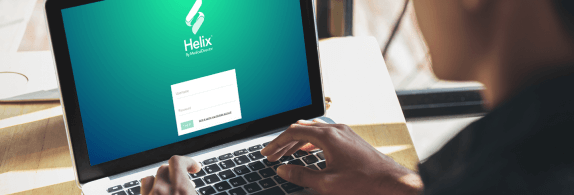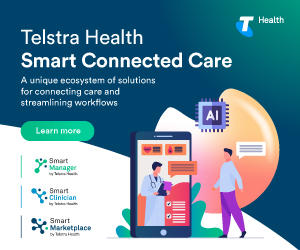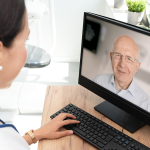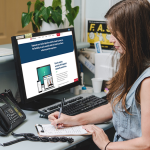Password safety in the cloud
Security is one of the biggest considerations for practices when assessing whether cloud clinical software is right for their business. However, many IT experts now recommend cloud over on-premise software, for its increased security, mobility and value.
In many cases, cloud is safer than on-premise software. MedicalDirector Helix cloud clinical software is backed by a billion dollar global security platform. Data is backed up across two different Australian data centres with all the latest leading security measures.
But just as with other cloud facilities — internet banking, online accounting and webmail — adequate password protection is crucial to maintaining a secure cloud clinical software environment.
What can you do to safeguard your data?
As well as using a secure platform and keeping your computer regularly updated, having a secure password is one of the best ways to safeguard your data and ensure that your systems are as secure as possible.
How to create a secure password
Here are a few tips to help you make sure your passwords are as strong as they can be:
- Make it hard to guess. Most people know that it’s best to avoid obvious passwords like PASSWORD or sequential numbers like 123456. It’s also a good idea to avoid birthdays, your kids’ names or anything else that someone could easily guess.
- Make it long. Longer passwords are much harder to guess (and easier to forget!). To make your password easy for you to remember, try choosing a passphrase rather than a single word. You can do this by putting four or more words together in a way that is meaningful for you, but wouldn’t be obvious to anyone else.
- Change it regularly. It’s a good idea to get into the habit of regularly changing your passwords. This way, if a hacker does gain access to your password, they’re only going to be able to use it for a limited time. It’s also a good idea to update your passwords routinely, when employees join or leave your business.
- Use different passwords in different places. This limits the damage someone could do if they guess one of your passwords as they won’t be able to use it to get into your other accounts.
- Consider using a password manager. Web apps like Lastpass and Dashlane provide an added layer of protection for your passwords, and they’re extremely helpful if you have a tendency to forget the passwords you set!
What to avoid
There are a few things you should avoid doing if you want to keep your passwords, and your personal information, safe and secure:
- Sharing passwords: This is a fairly obvious one but it’s worth saying again. Never share your password with anyone.
- Changing your password too often: While it’s good to change your password regularly, changing it too often could actually put you at risk by making it more likely you’ll use a weak password, or variants on the same password, that you can easily remember.
- Using anything that could be linked to your personal information: Steer clear of street addresses, your dog’s name or anything else that another person could associate with you and use to take a guess at your password.
Anyone who works in the healthcare industry has a responsibility to protect not only their data but their patients’ sensitive health information, too. It’s well worth taking the extra steps to ensure that your passwords are safe and secure, so your patients can trust that their information won’t fall into the wrong hands.









